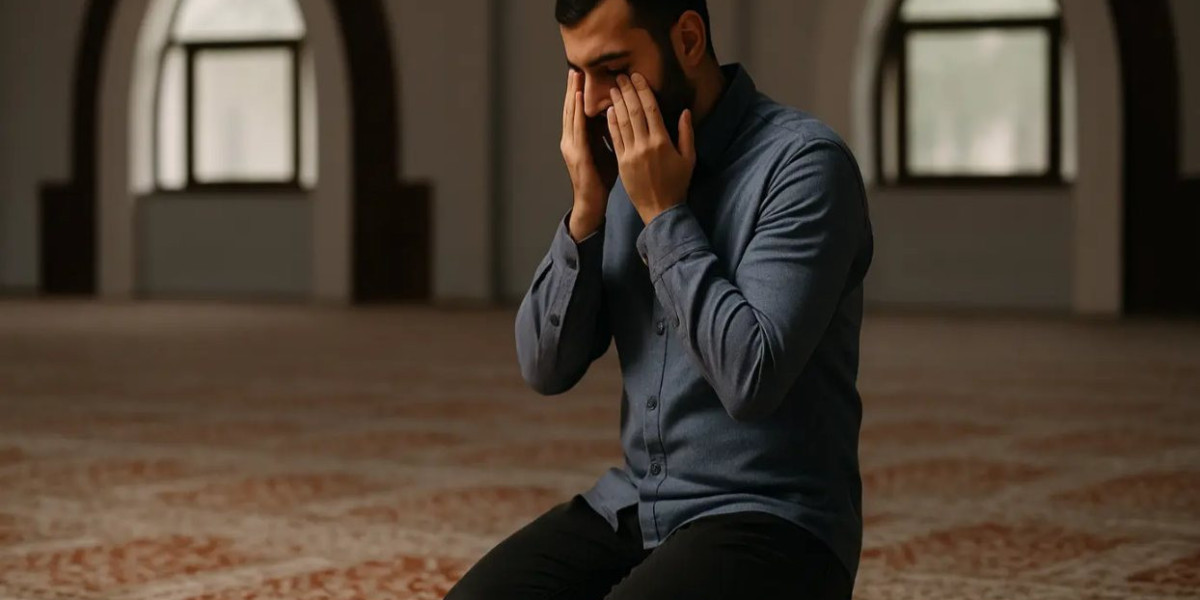Duas are a vitality of any day of a Muslim. They are brief, but they are effective supplications that put a believer in the direct contact with Allah. Duas remind people of God when they wake up, eat, travel, or want to get forgiveness. Simple duas are not only simple to memorize but play a key role in forming a good spiritual foundation.
They foster mindfulness and heighten connection to Creator and Worshipper. Several interpreters have noted that reciting duas as a child enables them to spend the rest of their life developing the habits of memory. It is well even that adults use these short prayers by having it at arms lengths.
In the digital age it is simpler than ever before with Muslims being able to access the tools needed to learn Quran online with the right guidance and learn authentic duas which can also be memorized easily.
The fact that this accessibility is achieved means that regardless of where an individual is based, they are capable of taking the words of the Prophet ﷺ into their daily endeavors.
Dua Before Sleeping
Reciting a dua before sleeping can bring protection and peace. The Prophet Muhammad ﷺ recommended that believers should end their day with remembrance of Allah. By reciting smaller duas, like "In Your name, O Allah, I die and I live" it serves as a reminder that our life and death is in the hands of Allah.
This simple reflection can strengthen one's belief and build inner peace with oneself. When this process is done consistently, it is then the night becomes a form of worship.
Parents can also share these words with their children so that they grow up honoring nightly remembrance. Going to bed with a dua gives the soul time to relax, be thankful, and feel protected.
Dua When Waking Up
Sayings in the morning have a profound effect on our day overall. When a Muslim wakes up, he or she is instructed to say: “All praise is for Allah who gave us life after death, and to Him is the return.” This dua is filled with thankful recognition for life and acknowledgement of resurrection.
A simple process of saying this short prayer is a great way to begin the day while keeping your heart in Allah’s mercy. Also, it encourages humility, as it reminds the believer of a new day and a new start.
By incorporating morning duas, the person can create a heightened sense of awareness, a stronger sense of discipline, and a different focus toward spiritual well-being in their daily life.
Dua Before Eating
Islam emphasizes being grateful at all times in life. Each time Muslims prepare to eat, they recite "In the name of Allah” or the longer version: “In the name of Allah, the Most Merciful, the Most Compassionate. which not only may qualify for blessings, but also creates awareness of the sustenance source.
Saying this dua protects the food from harm and makes eating a worshipful act. When families remind each other to say this dua, they are creating a home of gratitude, and turning an ordinary meal into a worshipful act. The dua reinforces that every provision comes from Allah, alone.
Dua After Eating
Finishing a meal with remembrance is a way of showing gratitude and humility. The dua that we're all familiar with is: "All praise is to Allah who fed us and gave us drink and made us Muslims." This short dua acknowledges both the physical sustenance by Allah, and a spiritual sustenance through our identity as Muslims.
Muslims who make remembrance of Allah after meals a habitual practice cultivate a spirit of gratitude or thankfulness even in the smallest and most ordinary blessings, such as meals.
In today's world of convenience, shortcuts and fast-food, we have a natural tendency to forget food is a blessing to be grateful for.
This dua, helps a believer stay focused on the Giver whilst enjoying His sustenance. It allows them to elevate physical-meal-time into a normal, but spiritual practice of contentment and remembrance.
Dua for Forgiveness
Everyone makes mistakes, it’s part of being human. Islam has taught us to seek forgiveness regularly, not just after committing a major sin. There is an incredibly simple dua, which is so impactful, and that is “O Allah, forgive me.” Adding words such as “You are the Most Forgiving, You love forgiveness, so forgive me” this shows sincerity.
This process cleanses the heart and develops humility in the believer. Continual repentance will strengthen the relationship with Allah and bring peace of mind.
When Muslims memorize and recite this dua daily, they are reminded of Allah’s mercy, and that it is far more than their sins. It is a way of healing, both for one’s soul and their mind.
Dua for Protection During Travel
Travel can come with risks and uncertainties. The Prophet ﷺ taught a special journey dua, "Glory is to Him who has subjected this to us, and we could never have accomplished it." It is a beautiful dua to demonstrate reliance on Allah to keep us safe.
This dua is especially helpful for Muslims today who travel often either for work, study, or family obligations. By saying this dua regularly before traveling we are reminded of Allah's protection - on land, air, or sea.
Once we memorize this dua and say it regularly, any journey becomes a spiritual journey of reliance on Allah - gratitude for Allah creating that means of travel.
Dua for Entering and Leaving Home
Learning duas for entering and leaving home provides a continual sense of security. Before going out, Muslims say: "In the name of Allah, I place my trust in Allah, and there is no power nor might except with Allah." Upon entry they greet the family by saying, "Peace be upon you" and blessings for the household.
All these duas define the homes making them places of worship and safety. They keep the harms in the world away, while also bringing barakah. For the parents practicing this, they are teaching their children a way to say "In the name of Allah" and to remember Allah both at the start and at the end of every trip, as well as making them cognizant of Allah in their daily lives. It will foster a system of life long devotion.
Dua for Seeking Knowledge
In Islam, knowledge is very important. Before they begin their study, Muslims will often recite: "O Allah, increase me in knowledge." This dua includes humility and reliance on Allah for its meaning. It serves as a mechanism to remind students that knowledge is a trust (amanah) from Allah and not simply an academic pursuit. Teachers further encourage this dua to more easily foster ikhlas (sincerity in learning).
In this day and age of online Quran classes which benefit so many people, this dua reminds students and learners that their pursuit of knowledge is truly only for the sake of Allah.
It starts to turn education into ibadah (worship) and makes sure that any potential knowledge gained is of benefit to them in this life and the Hereafter.
Simple Duas to Teach Children (Bullet Points Section)
Teaching children simple duas helps them grow with faith. Parents and teachers can start with short, easy prayers:
Dua before sleeping: Bismika Allahumma amootu wa ahyaa
Dua before eating: Bismillah
Dua after eating: Alhamdulillah
Dua for waking up: Alhamdu lillaahil-lathee ahyaanaa
Dua for entering the washroom: Allahumma inni a’oodhu bika minal-khubuthi wal-khabaa’ith
These short duas are simple to memorize and can be introduced with repetition. By teaching them early, children build habits of remembrance that stay with them for life.
Conclusion
The process of memorizing easy duas is a lifelong practice that improves both faith and discipline. These tiny supplications bring mindfulness into every activity - for example, waking up, sleeping, eating, or traveling. They are easy to memorize and have a huge amount of reward associated with them.
By making it a daily practice to recite dua or simply think about dua, Muslims are instilling presence, gratitude, humility, and constant connection to Allah in their lives.
In the present era, having access to authentic sources and platforms that help believers to learn Quran online makes it easier than ever to build this practice into your daily life.
At the end of the day, carrying duas in your heart will turn everyday tasks into acts of worship and will keep a Muslim's life action-oriented and based on a state of remembrance of Allah.



